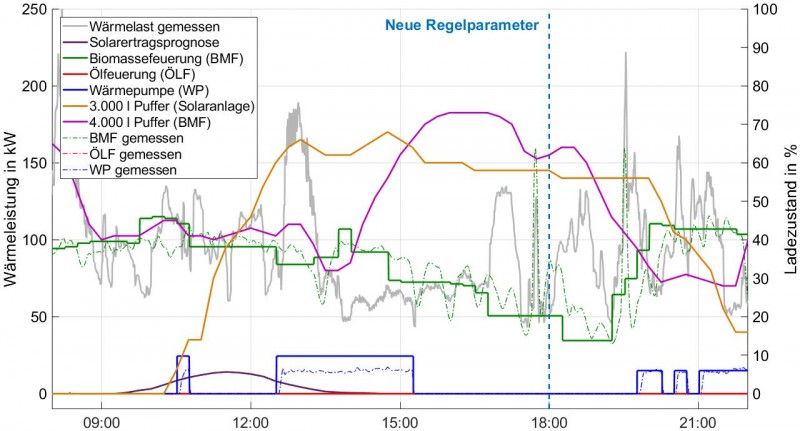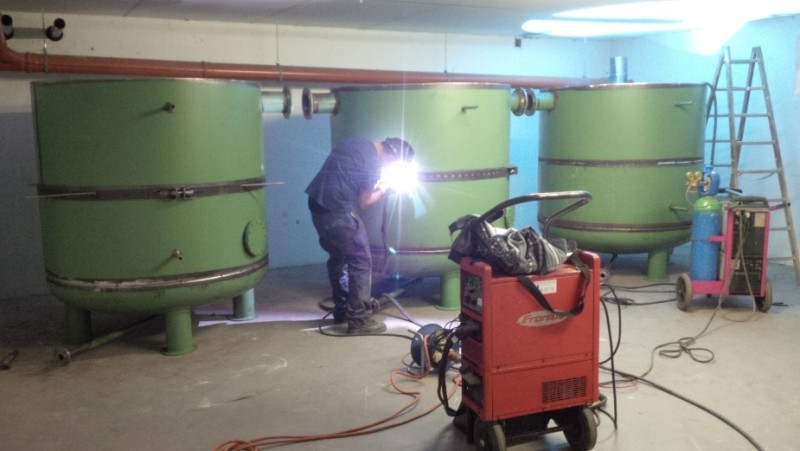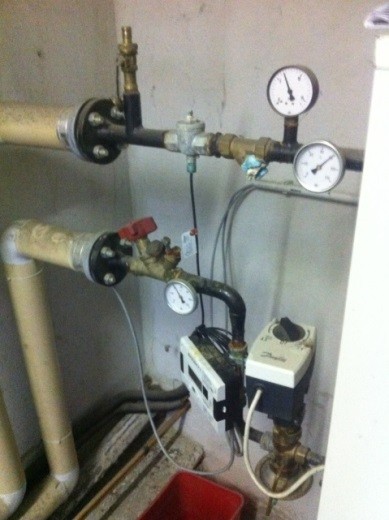Bi-directional integration of buildings with heat production capacities in heating grids 2+
Heat grids are an excellent way to integrate renewable energy sources into a universal heat supply system and thus reduce CO2 emissions and other environmental impacts. At the moment, however, many locally available heat sources remain unused. In addition, there tend to be various problems in the operation of the networks; for example, summer operation is almost always deficient.
Very simple solutions are also often used for control strategies, which therefore do not exploit the overall potential. If a heat network reaches its capacity limits, conventional expansion is usually only possible with a great deal of effort.
Therefore, it is desirable to integrate all regionally available renewable heat sources (biomass boilers, solar thermal plants, waste heat from commercial, industrial processes and refrigeration plants, which are lifted to network temperature by means of heat pumps) as far as possible. This can be used to relieve the network load, and operating modes with deficits can often be avoided by intelligent decentralised solutions. At the same time, emissions are reduced as partial load operation and frequent switching on and off are no longer necessary for the boilers involved.
In the project BiNe2+, approaches from the precursor project BiNe were taken up and continued. The main three areas of research were:
- plant technical analysis, from which a comprehensive catalogue of criteria has been derived; further development of integration concepts, e. g. feed-in via high-temperature heat pumps, which use solar collectors (implemented) or waste heat from food cooling (conceptualized) as an energy source; design of a bidirectional transfer station.
- development of a superordinate model predictive energy management system for the optimized feed-in of several heat producers and implementation in the district heating network of the community Großschönau.
- simulation with global or interaction-based optimization: These are used for different scenarios to compare the economic efficiency of prosumer solutions with the one of conventional central solutions.
Projektvolumen
EUR 1,246.604,-- (gesamt)
Projektlaufzeit
2015-04-01 - 2017-12-31
Supported by
Dieses Projekt wird aus Mitteln des Klima- und Energiefonds gefördert und im Rahmen des Energieforschungsprogramms 2014 durchgeführt. .jpg)
Projektpartner
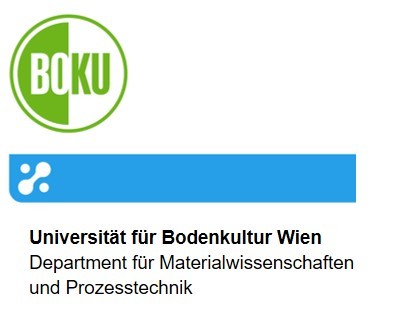



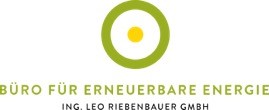

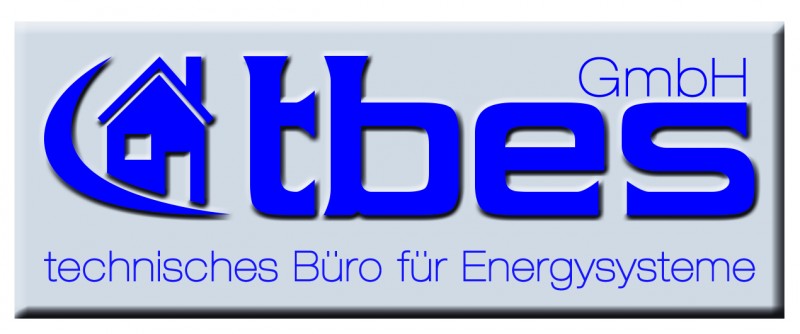
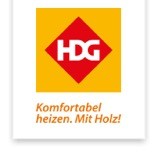

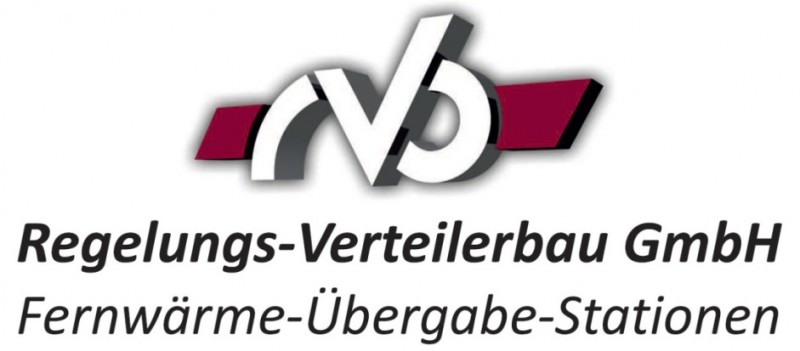
Contact

Klaus LICHTENEGGER
klaus.lichtenegger@best-research.eu

Markus GÖLLES
markus.goelles@best-research.eu

Daniel MUSCHICK
daniel.muschick@best-research.eu
Area Management
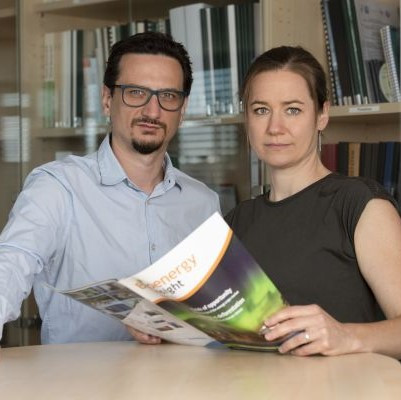
Elisabeth Wopienka / Manuel Schwabl
elisabeth.wopienka@best-research.eu manuel.schwabl@best-research.eu
